Introduction
In December 2024, the Naratika Community Learning Center (CLC) made significant strides in its mission to support child development, empowerment, and engage the community. Under the guidance of the librarian and children’s learning activity facilitator, the month’s focus was on promoting English literacy, raising awareness about human trafficking, and building relationships with local schools. These accomplishments reflect the center’s ongoing commitment to education, empowerment, and principles of voluntary service.
Despite challenges, the dedication of the staff, students, and volunteers made a lasting impact on the community. This report highlights the month’s activities, successes, and future potential.

Achievements and Priority Activities
1. Promoting English Reading and Speaking
This month, the key focus was improving students’ English literacy. The program aimed to build confidence and fluency in the language by fostering a love for reading and creating interactive learning opportunities.
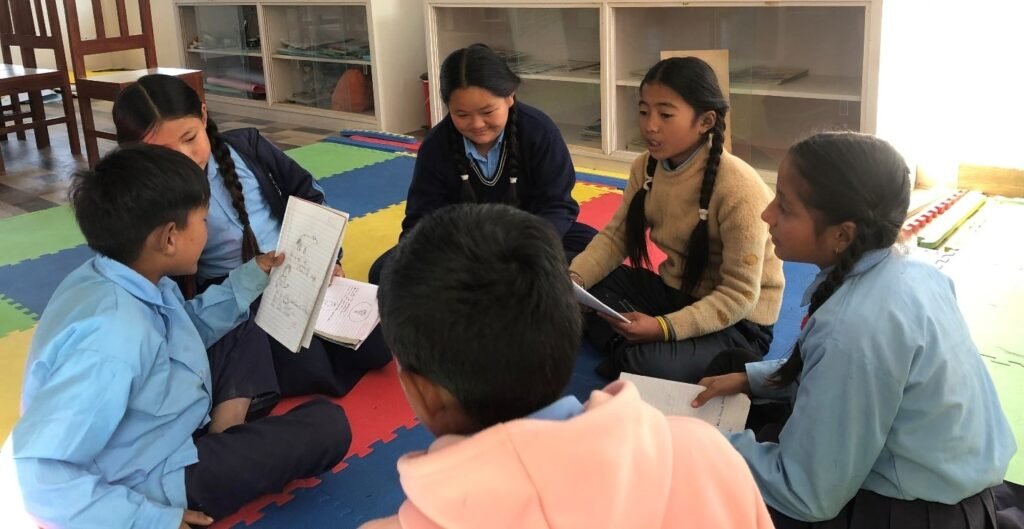
Activities Included:
- Reading English Books: Students were encouraged to read and write book reviews. The reviews required the title, author, number of pages, and main ideas. This activity motivated students to complete books and engage with their content.
- Practicing Self-Introductions: Students practiced introducing themselves and their families in English. This activity focused on building their conversational skills and confidence.
- Typing Introductions: To integrate language learning with technology, students used computers to type their introductions. This taught them essential digital skills while reinforcing their English lessons.
Key Achievements:
Seventy students participated in these activities, with many successfully introducing themselves in English. Writing book reviews marked an essential step in developing comprehension skills.
2. Women’s Empowerment: Combating Human Trafficking and Emotional Awareness
The center also hosted sessions for women, focusing on critical topics like human trafficking prevention and emotional well-being.
Activities Included:
- Human Trafficking Awareness: Participants learned about the dangers of human trafficking, its causes, and how to recognize and prevent it.
- Managing Emotions: Women discussed what triggers their emotions and explored strategies for managing them effectively.
Key Achievements:
Approximately 25–30 women attended the sessions. They gained a deeper understanding of human trafficking and shared personal stories, which fostered a sense of community and support.
3. Building Relationships with Local Schools
Another priority was strengthening partnerships with schools in the CLC’s catchment area. Building these relationships ensures better collaboration for future activities, workshops, and programs that benefit students and teachers alike.
Challenges and Solutions
Every project encounters challenges. At the CLC, addressing these obstacles required innovative thinking and teamwork.
1. Engaging Women in women‘s empowerment Sessions
Challenge: Women sometimes struggle to stay engaged, especially when the content is irrelevant.
Solution: The facilitator made the sessions more relatable and meaningful by sharing real-life stories and examples from their communities.
2. Students’ Fear of Speaking English
Challenge: Students were shy and hesitant to speak English, fearing mistakes.
Solution: Introducing fun activities like pair work and games (e.g., “hot potato”) helped students practice speaking in a supportive environment. These methods encouraged participation and reduced fear.
Why This Work Matters
1. Promoting English Literacy
English literacy is vital for future opportunities, especially in rural Nepal. According to UNICEF, improved literacy boosts children’s confidence and increases their chances of pursuing higher education and better jobs. Interactive methods, such as reading, writing, and speaking exercises, are essential for developing these skills.
2. Combating Human Trafficking
Nepal remains vulnerable to human trafficking, with an estimated 35,000 people trafficked annually (source: Nepal Human Rights Commission). Raising awareness and providing actionable knowledge can hep in women‘s empowerment to protect themselves and their communities.
3. Importance of Volunteer Work
Volunteers play a critical role in implementing programs like these, and their dedication ensures that rural communities have access to education, resources, and support. Voluntary service benefits the community and enriches volunteers’ lives by fostering cross-cultural understanding and personal growth.
Feedback and Recommendations
Feedback from the Field
- Contextual Research: Understanding the needs and characteristics of the community before sessions ensures more effective outcomes.
- Planning and Preparation: A clear monthly activity plan helps facilitators and volunteers stay organized and focused.
Recommendations for Improvement
- Introduce more creative engagement methods for women, such as role-playing, storytelling, and group discussions.
- Expand the library’s collection of English books, catering to various reading levels and interests.
- Encourage more volunteers to participate in programs. Their diverse experiences and skills can enhance the impact of activities.
Call to Action
Make a Difference Today!
Are you passionate about education, women‘s empowerment, or combating human trafficking? Join us at the Naratika Community Learning Center!
Whether you’re interested in volunteering, donating, or supporting our programs, your contribution can create lasting change.
- Volunteer Your Time: Help children learn English, assist in women’s empowerment programs, or contribute your unique skills.
- Donate to the Cause: Your support helps us provide books, resources, and workshops for underserved communities.
- Spread the Word: Share our story to inspire others to get involved.
Visit our website today and discover how you can support our mission.
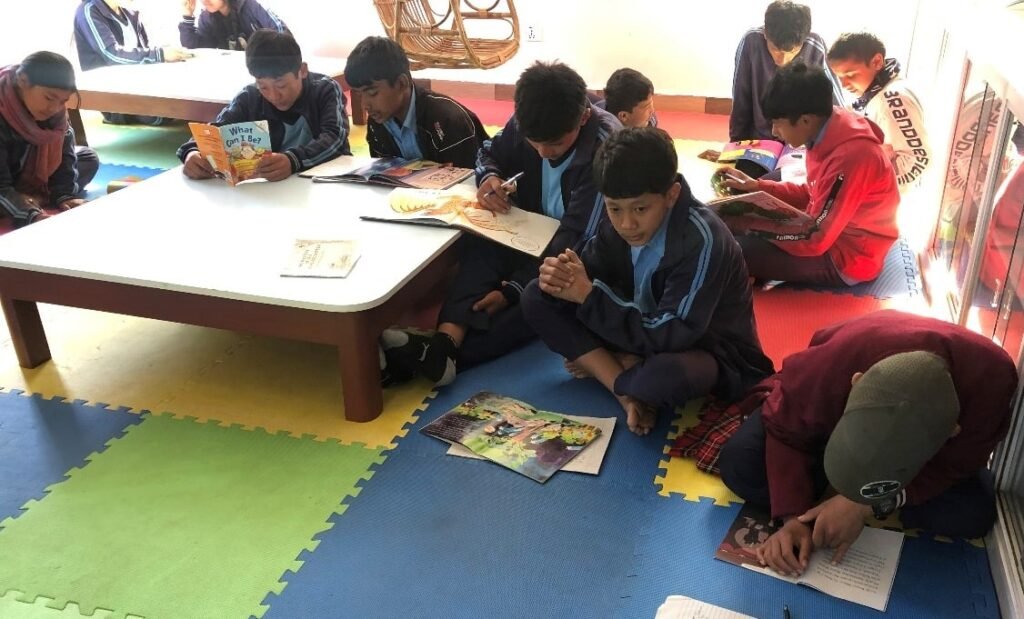

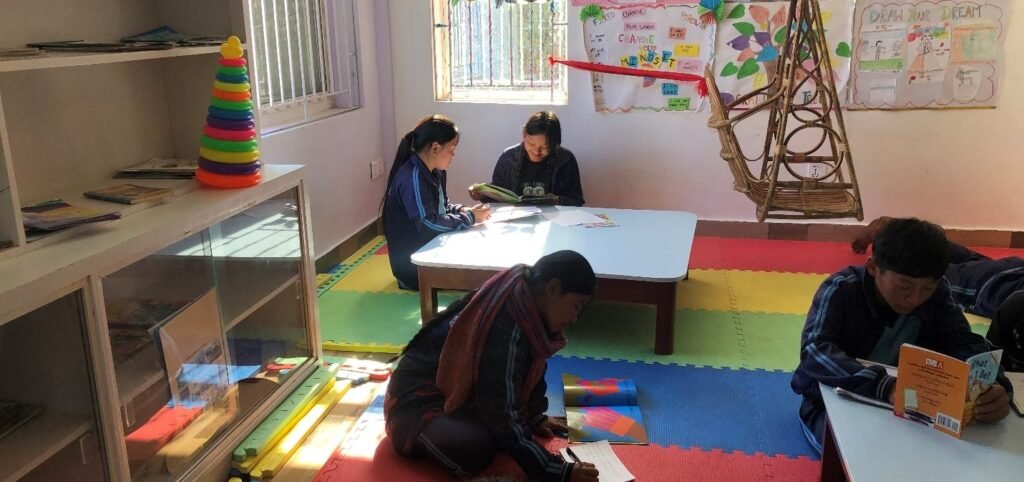
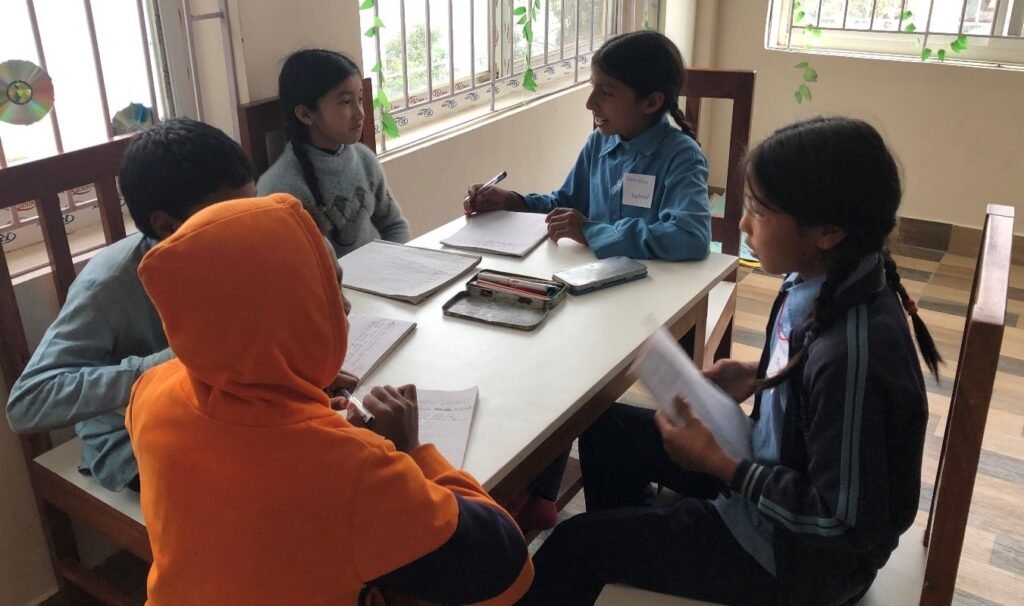

FAQs
1. Why is English literacy critical in Nepal?
English literacy opens doors to global opportunities, enhances students’ confidence, and equips them for higher education and careers.
2. How does volunteering benefit rural communities?
Volunteers bring knowledge, skills, and resources that improve education, empowerment, and community development.
3. What steps are being taken to combat human trafficking in Nepal?
Awareness sessions, community education, and support networks are key strategies for reducing human trafficking.
4. How does the CLC promote education and empowerment?
The CLC provides access to books, workshops, and interactive activities that build literacy, life skills, and awareness.
5. What challenges do volunteers face in rural areas?
Volunteers may encounter resource shortages, language barriers, and cultural differences. However, with training and support, they adapt and make a meaningful impact.
6. What role does voluntary service play in projects like these?
Voluntary service ensures that programs reach underserved communities, bridging gaps in education, awareness, and resources.
7. How can I support the Naratika CLC?
You can volunteer, donate, or advocate for the center’s programs. Every contribution counts toward building a brighter future.
Conclusion
December 2024 showcased the power of education, empowerment, and voluntary service at the Naratika CLC. From teaching children to read and speak English to empowering women with knowledge about human trafficking, every effort made a difference.
This work would not be possible without the dedication of facilitators, staff, and volunteers who believe in creating change. Together, we can continue building a world where education and empowerment reach every corner of Nepal.
Please take Action Today. Join us on this incredible journey by volunteering, donating, or sharing our mission. Let’s empower communities one step at a time.


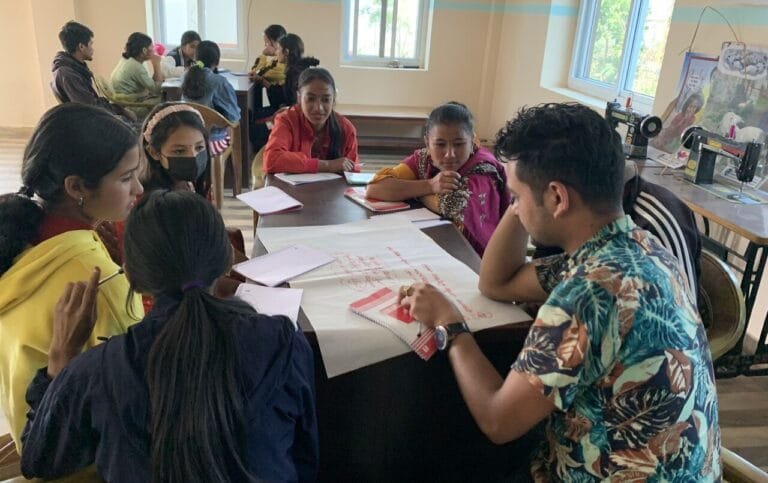
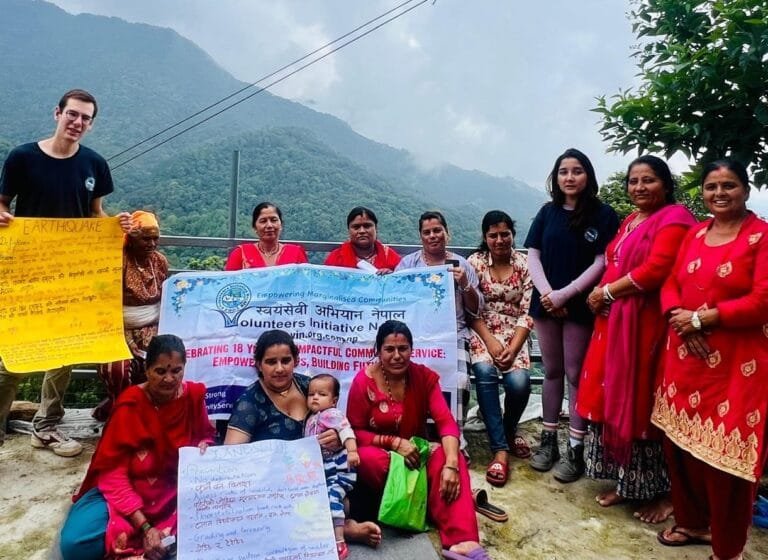

[…] on this program allowed me to gain a deeper understanding of the importance of community engagement in disaster risk reduction. I learned that simply providing information is not enough; it is […]